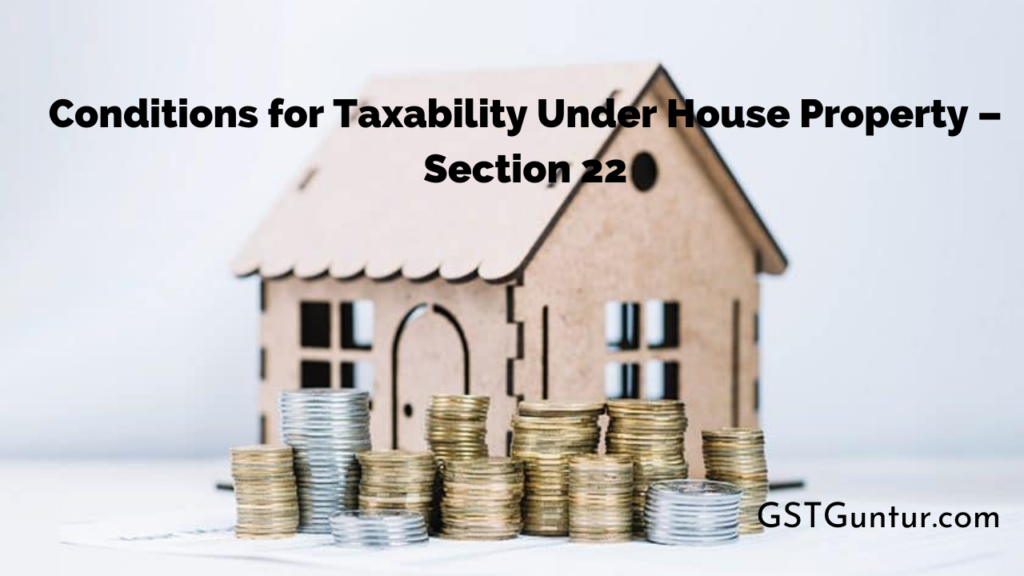Conditions for Taxability Under House Property – Section 22: Section 14 through Section 59 of the Income Tax Act of 1961 compose Chapter IV. They are concerned with the regulations pertaining to the estimation of total income.
Section 22 of the IT Act 1961-2020 addresses income from home property.
Taxability Under House Property Eligibility Criteria
The eligibility criteria under which the housing property will be evaluated for taxes under Section 22 are specifically listed below.
- Any building or land attached or appurtenant to it should be taken into consideration as a part of the property.
- Buildings incorporate not just residential structures but also industrial or commercial establishments like offices, stores, go-downs, and other business buildings.
- The phrase “land appurtenant” corresponds to land that is directly linked to a building, such as a garden or a garage.
- Furthermore, income from the rental of unoccupied land is assessed under the title “Income from other sources” as per Section 56.
- The taxpayer has to be the property’s registered owner.
- The owner is the independent individual who has the right to collect income from the property in their own perfect right.
- The necessity to register the sale contract is not justified.
- Ownership mainly consists of both freehold and leasehold rights.
- The term “ownership” also covers “deemed ownership.”
- The owner of the construction does not have to be essentially the owner of the land on which it currently stands.
- The taxpayer must have fully owned the residential property in the preceding year. It barely matters whether or not they have the ownership all through the evaluation year.
- If the title to the property is held for debate in a legal proceeding, the final decision as to who will possess the ownership subject to income tax under section 22 will then be simply determined by the Income-tax Department until the court rules on the action submitted.
- The estate could be utilized for any desired intention. Still, it may not be exploited by the holder for the purpose of engaging in any business or profession under which the financial gain is subject to taxation.
- Property is retained as stock-in-trade.
Annual Value of House Property
The annual value of the residential property will be treated as income under the category “Income from house property” in the following situations as well
- Where the taxpayer currently holds it as stock in trade of a company.
- Where the taxpayer is in the private business of renting or leasing out property;
Exceptions to this rule include:
- Letting out as a sideline to the primary source of income.
- Building and other facilities and equipment are being rented out simultaneously.
